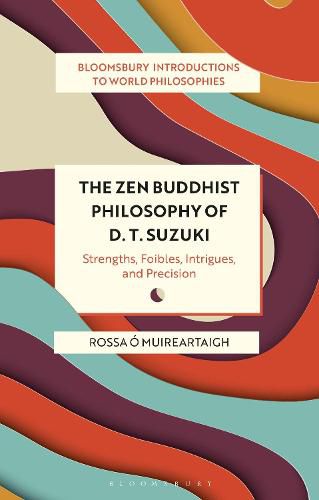Readings Newsletter
Become a Readings Member to make your shopping experience even easier.
Sign in or sign up for free!
You’re not far away from qualifying for FREE standard shipping within Australia
You’ve qualified for FREE standard shipping within Australia
The cart is loading…






D.T. Suzuki (1870-1966) reached global fame for his writings on Zen Buddhism. In this introduction to his theories of self, knowledge, and the world, Suzuki is presented as a Buddhist philosopher in his own right.
Beginning with a biography of his life providing the historical context to his thought and discussing Suzuki’s influences, chapters cover the Zen notion of the non-self and Suzuki’s Zen view of consciousness, language, and religious truths. His ideas about philosophy and radical views on rationality and faith come to life in two new complete translations of The Place of Peace in our Heart (1894) and Science and Religion (1949), which helps us to understand why Suzuki’s description of Zen attracted the attention of many leading intellectuals and helped it become a household name in the English-speaking world.
Offering the first complete overview of Suzuki’s approach, reputation, and legacy as a philosopher, this is for anyone interested in the philosophical relevance and development of Mahayana Buddhism today.
$9.00 standard shipping within Australia
FREE standard shipping within Australia for orders over $100.00
Express & International shipping calculated at checkout
D.T. Suzuki (1870-1966) reached global fame for his writings on Zen Buddhism. In this introduction to his theories of self, knowledge, and the world, Suzuki is presented as a Buddhist philosopher in his own right.
Beginning with a biography of his life providing the historical context to his thought and discussing Suzuki’s influences, chapters cover the Zen notion of the non-self and Suzuki’s Zen view of consciousness, language, and religious truths. His ideas about philosophy and radical views on rationality and faith come to life in two new complete translations of The Place of Peace in our Heart (1894) and Science and Religion (1949), which helps us to understand why Suzuki’s description of Zen attracted the attention of many leading intellectuals and helped it become a household name in the English-speaking world.
Offering the first complete overview of Suzuki’s approach, reputation, and legacy as a philosopher, this is for anyone interested in the philosophical relevance and development of Mahayana Buddhism today.